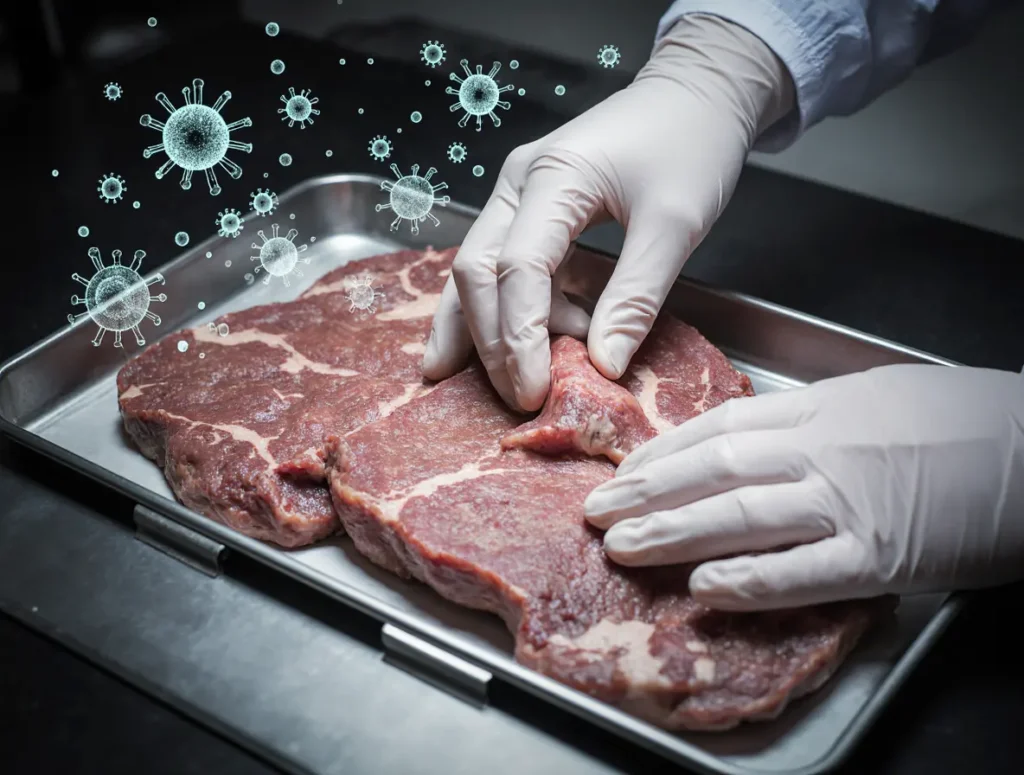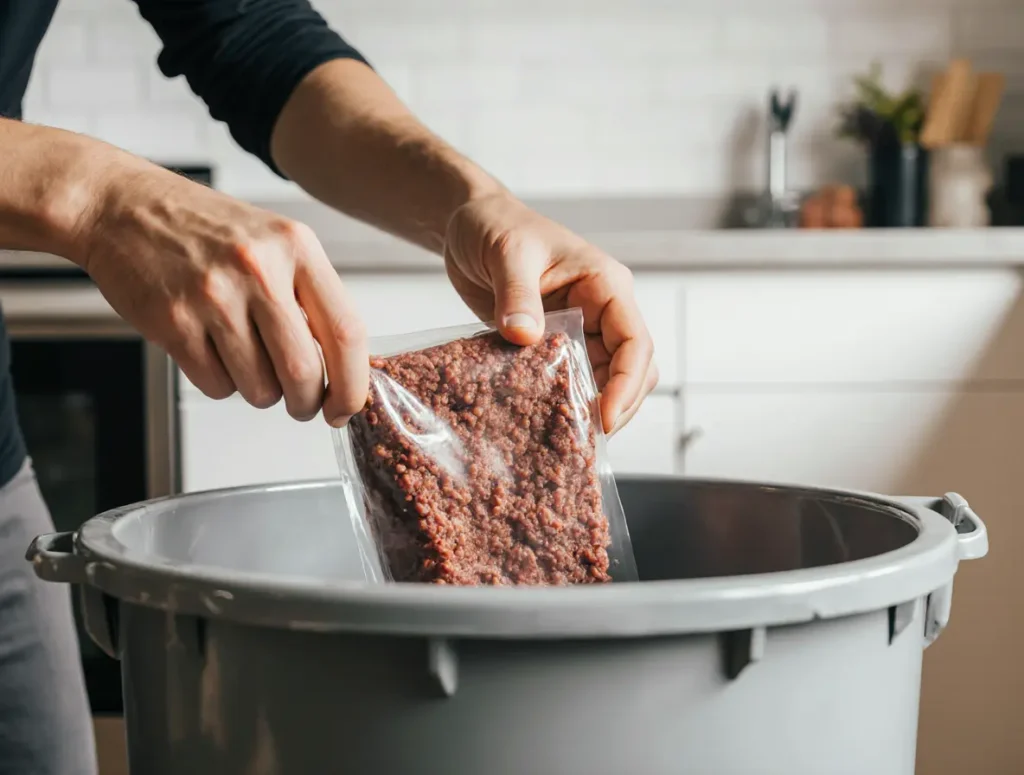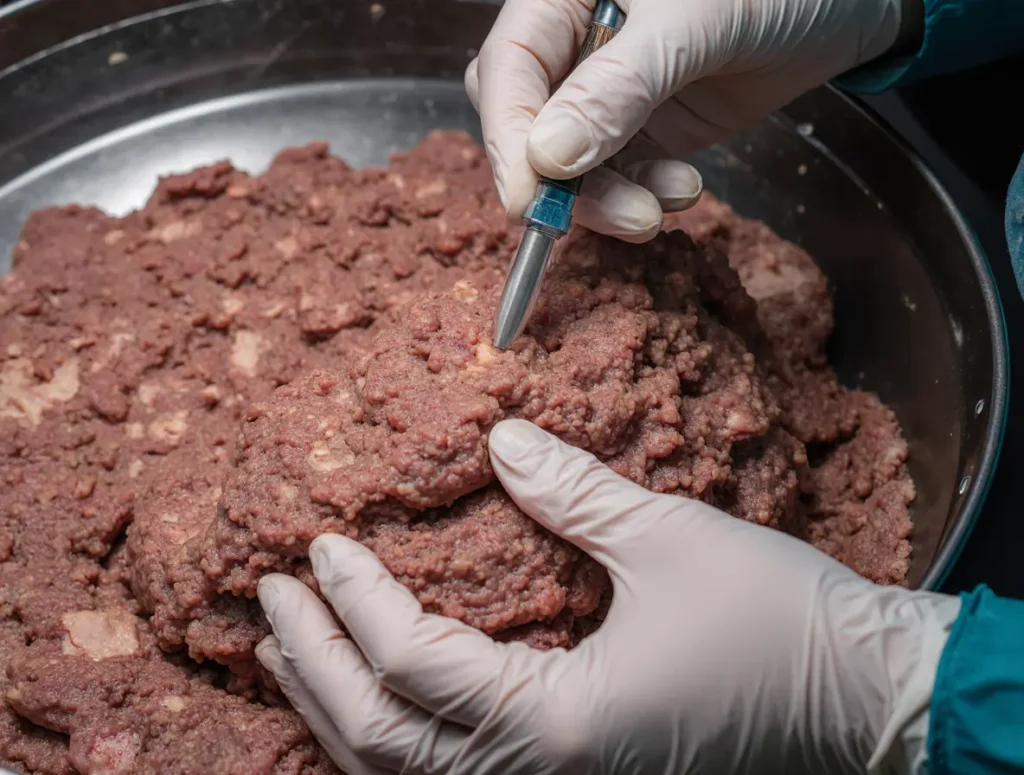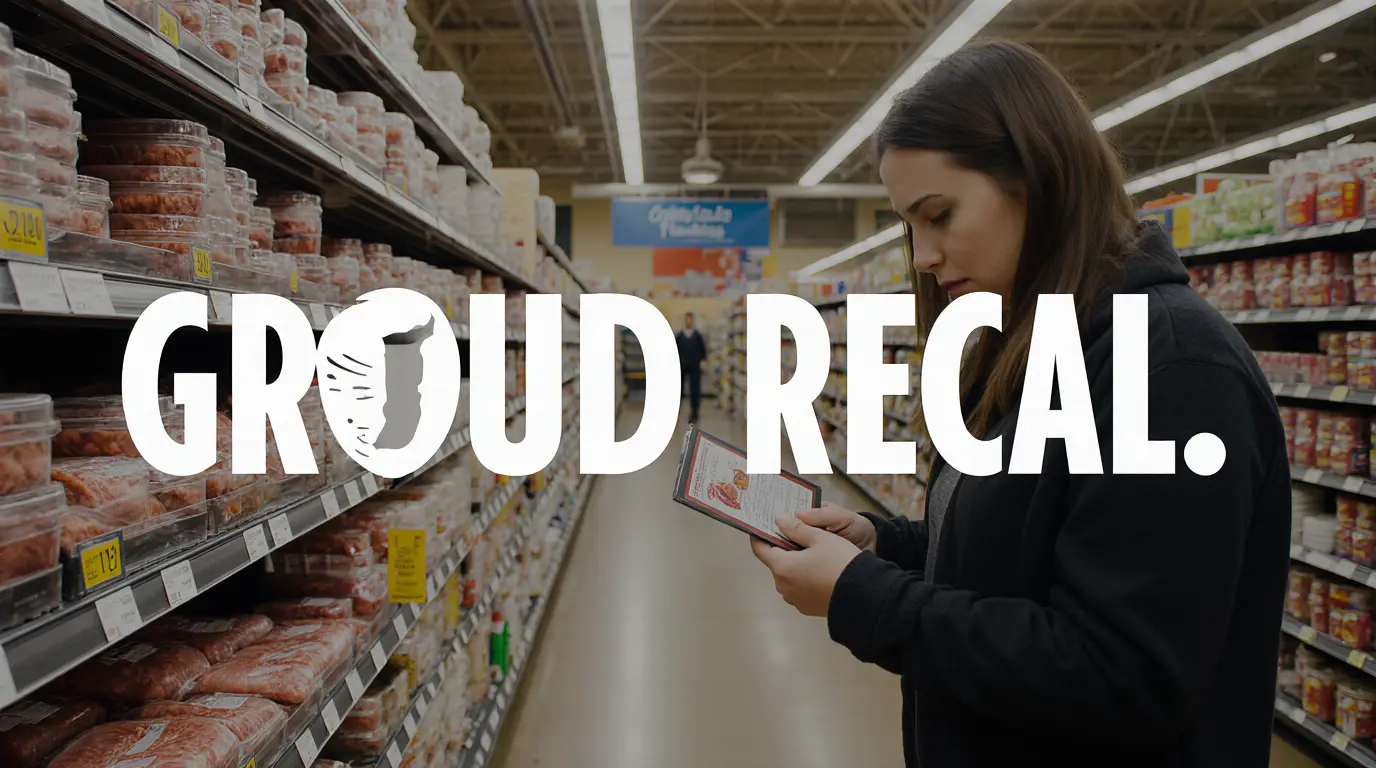Is Your Meat Safe? Inside the Aladdin Ground Beef Recall and What It Means for You
Table of Contents
When you pick up a pack of ground beef, you trust that what you’re taking home is safe for your family’s table. But sometimes, that trust is shaken — and recently, one name has made headlines across the country: Aladdin Ground Beef.
In one of the most widely discussed recalls of the year, the Aladdin Ground Beef Recall has raised alarms among consumers, grocery chains, and food safety authorities. If you’ve purchased ground beef in recent weeks, you may be asking yourself an urgent question: Is my meat safe to eat?
Let’s walk you through everything you need to know — what triggered this recall, which products are affected, how to check your meat at home, and most importantly, what steps you can take to keep your family safe.
⚠️ Understanding the Aladdin Ground Beef Recall
Recalls aren’t new — they happen when products are found to pose potential health risks. But the Aladdin Ground Beef Recall stands out due to its scale and the potential severity of the issue.
According to a statement from the U.S. Department of Agriculture’s Food Safety and Inspection Service (USDA-FSIS), Aladdin Foods voluntarily issued a recall after routine testing identified possible contamination in several batches of ground beef products distributed nationwide.
Here’s a quick overview of what’s known so far:
| Product Name | Lot Number | Use By Date | Distributed In | Recall Classification |
|---|---|---|---|---|
| Aladdin 80% Lean Ground Beef | AGB-2410 | 10/25/2025 | Multi-State (Retail + Wholesale) | Class I (High Health Risk) |
| Aladdin Family Pack Ground Beef | AFP-1025 | 10/27/2025 | Grocery Chains Nationwide | Class I (High Health Risk) |
| Aladdin Ground Beef Patties | AGP-1027 | 11/01/2025 | Regional Stores | Class I (High Health Risk) |
A Class I recall indicates a situation where there’s a reasonable probability that consuming the product could cause serious health problems or even death.
The Aladdin recall began after test results showed the presence of harmful bacteria, possibly E. coli O157:H7 — a pathogen known to cause severe foodborne illness.
🧬 What Caused the Aladdin Ground Beef Recall?

Every food recall has a story behind it — and in this case, the cause traces back to something that can happen even inside the most regulated facilities. The Aladdin Ground Beef Recall began after food safety inspectors identified a possible E. coli O157:H7 contamination during a routine batch test.
You might not realize it, but contamination like this often starts long before products ever reach your grocery store. In Aladdin’s case, the issue appears to have emerged during the processing stage, where large quantities of meat are handled, ground, and packaged for distribution.
🔬 Here’s what investigators discovered:
- Cross-contamination risks — Equipment used to grind or handle raw meat wasn’t fully sanitized between batches, allowing bacteria to spread from one production run to another.
- Supplier chain vulnerability — One of Aladdin’s upstream suppliers reportedly delivered raw beef trimmings that may have already been compromised before they reached the main processing plant.
- Temperature inconsistencies — Improper refrigeration or delays during transport can create the perfect environment for bacterial growth, especially when dealing with large bulk shipments.
- Testing confirmation — Routine USDA-FSIS safety testing flagged traces of E. coli O157:H7 in samples from multiple product lines. That triggered an immediate investigation and, shortly after, a voluntary recall by Aladdin Foods.
The contamination wasn’t detected through consumer complaints — it was caught through proactive federal testing. While that may sound unsettling, it’s actually a sign that the food safety system worked exactly as intended.
You were protected before a larger outbreak occurred.
Still, for Aladdin and its partners, the incident highlights a critical truth: even one overlooked sanitation step or a delayed temperature check can have major consequences once products hit national distribution.
🧾 Official Response and Ongoing Investigation
The USDA Food Safety and Inspection Service (FSIS) quickly classified this as a Class I recall, the most serious category, meaning there’s a credible health threat if the contaminated meat is consumed.
Federal officials, working alongside Aladdin’s internal safety teams, are now conducting DNA fingerprinting to match the bacterial strain and trace its precise origin. The findings will determine whether the contamination started at the supplier level or within Aladdin’s own processing environment.
For you as a consumer, the takeaway is simple: this recall doesn’t reflect widespread negligence but rather a system working to prevent harm. Recalls like this one serve as a warning — and as a reminder that safety checks are your strongest line of defense against invisible risks.
🥩 How to Check If You Have Recalled Aladdin Ground Beef at Home
The first step is identification. If you’ve purchased any Aladdin ground beef products in the last month, take a few minutes to inspect your freezer and refrigerator.
Here’s what to do:
🔍 Step-by-Step Guide
- Locate the product label.
Look for the “Est. Number” printed near the USDA inspection seal — Aladdin’s recalled products carry EST. 5134A. - Check the packaging date and lot number.
Compare it to the list above or to official USDA recall updates. - Examine storage areas.
Recalled items could be stored in freezers — contamination risks remain even when frozen. - Do not taste or cook to test.
Cooking may not eliminate all strains of harmful bacteria like E. coli. - When in doubt, throw it out.
It’s not worth the risk.
You can also confirm recall details on the USDA Recalls & Public Health Alerts Portal, where all official recall announcements are listed.
🚮 What to Do If You Bought the Recalled Meat

If you’ve discovered that your ground beef is part of the Aladdin Ground Beef Recall, it’s important to act quickly — but calmly. The goal now is to protect your household, eliminate potential exposure, and handle the situation safely.
Here’s exactly what you need to do:
1️⃣ Stop Using the Product Immediately
The most important step is simple: do not cook, taste, or serve the recalled meat. Even thorough cooking might not destroy every trace of harmful bacteria like E. coli O157:H7.
- Keep the package sealed to prevent juices from leaking.
- Avoid touching it with bare hands; use disposable gloves or paper towels.
- If the package is already open, place it inside a clean, sealed plastic bag before disposing.
If you have any doubts about whether a pack of ground beef is affected — err on the side of caution and discard it.
2️⃣ Dispose of It Safely
You should never leave recalled meat inside your kitchen trash or refrigerator. Instead:
- Double-bag the product to prevent contamination.
- Place it directly into an outdoor trash bin, away from children or pets.
- Wash your hands thoroughly with warm water and soap afterward.
If you’re worried about strong odors from spoiled meat, sprinkle a small amount of baking soda inside the trash bag before sealing it.
3️⃣ Clean and Sanitize Everything It Touched

Contaminated meat can spread bacteria to any surface it touches — countertops, cutting boards, and even refrigerator handles.
Take a few minutes to disinfect all potential contact areas using this simple formula:
Mix one tablespoon of bleach with one gallon of water.
Use this solution to wipe down all surfaces, utensils, and containers that may have come into contact with the beef. Let it air-dry for at least ten minutes for full effectiveness.
For items like cutting boards or reusable containers, wash them in hot, soapy water first, then sanitize.
4️⃣ Check Your Refrigerator and Freezer
Even if you threw away the recalled meat, cross-contamination could have occurred inside your fridge or freezer.
- Remove any exposed food stored near the recalled package.
- Clean shelves, drawers, and freezer racks with the same bleach-water mix.
- For freezers, unplug them briefly to defrost any spilled juices before sanitizing.
It’s a small effort that could prevent a major health problem later.
5️⃣ Request a Refund or Replacement
Most retailers participating in the recall are offering full refunds or replacements, no questions asked. You don’t need your receipt — just bring the product label or a photo of the package to the customer service desk.
If you prefer not to visit the store, you can also contact:
- 🏭 Aladdin Foods Consumer Hotline: 1-800-555-ALDN
- 🌐 Official Recall Page: www.aladdinfoods.com/recall
You’ll likely be asked for the lot number, “Use By” date, and establishment number (EST. 5134A) printed near the USDA seal.
Refunds are typically processed within a few business days.
6️⃣ Monitor Your Health

If anyone in your household consumed the recalled ground beef — even in small amounts — pay close attention to any symptoms that appear over the next several days.
Seek medical care right away if you notice:
- Persistent diarrhea or stomach cramps
- High fever or chills
- Nausea or vomiting
- Unusual fatigue or dehydration
Be sure to mention to your healthcare provider that you may have been exposed to contaminated ground beef from the Aladdin recall. This helps doctors perform the right tests early.
✅ Final Step: Stay Informed
Food recalls happen more often than most people realize, and staying aware is your best defense.
You can subscribe to recall notifications directly from the USDA Food Safety and Inspection Service (FSIS) website. Once enrolled, you’ll receive instant alerts whenever a recall like this occurs — giving you a head start before products even hit the news.
Sign up here: https://www.fsis.usda.gov/recalls
When a situation like this unfolds, it’s natural to feel unsettled. But by taking immediate action — disposing safely, cleaning carefully, and reporting the issue — you’re already ahead of the problem.
Each recall serves as a reminder that vigilance in your kitchen matters just as much as vigilance in the factories that supply your food.
🧫 Health Risks Linked to Contaminated Ground Beef
E. coli and similar bacteria are more dangerous than most people realize. When you eat contaminated meat, symptoms can appear anywhere from one to ten days after exposure.
Common Symptoms Include:
- Abdominal pain and cramping
- Severe diarrhea (sometimes bloody)
- Nausea and vomiting
- Fever or chills
While healthy adults usually recover within a week, for children, the elderly, and immunocompromised individuals, infections can lead to Hemolytic Uremic Syndrome (HUS) — a life-threatening kidney condition.
If you or someone in your household ate beef from the recalled batch and now feels unwell, seek medical help immediately and inform your healthcare provider about the potential exposure to contaminated meat.
🍳 How to Handle and Cook Ground Beef Safely
Even outside of recalls, safe handling practices protect you from hidden risks.
Here’s what food safety experts recommend:
Cooking Temperature Guide
| Meat Type | Internal Temperature | Cooking Method |
|---|---|---|
| Ground Beef | 160°F (71°C) | Pan-fry, grill, bake |
| Beef Patties | 160°F (71°C) | Grill or air fryer |
| Meatloaf | 160°F (71°C) | Oven bake |
Safety Tips for Everyday Cooking
- Wash your hands with warm, soapy water before and after handling raw meat.
- Use separate cutting boards for raw and cooked foods.
- Thaw beef in the refrigerator, never at room temperature.
- Refrigerate leftovers within two hours of cooking.
These habits may sound simple, but they drastically reduce your risk of foodborne illness.
🏭 The Broader Impact: Trust and the Meat Industry
A recall like this doesn’t just affect the manufacturer — it ripples across the entire supply chain.
Grocery stores face inventory losses, consumers lose confidence, and producers must rebuild credibility after the dust settles. The Aladdin recall, while alarming, could ultimately lead to better oversight and safety improvements across the industry.
Food safety experts note that these incidents often drive stricter testing standards, improved employee training, and more transparency in sourcing.
While it’s easy to feel uneasy, remember: the recall system exists to protect you, not scare you. Quick action by regulators and companies ensures potentially hazardous food is removed before more people fall ill.
👨👩👧 What This Recall Means for You and Your Family

When something as essential as ground beef becomes a concern, it’s natural to feel anxious. But awareness is your strongest protection.
By staying alert, verifying products, and following safety alerts from the USDA or CDC, you safeguard your home against preventable risks. Consider subscribing to food recall updates — these notifications arrive directly in your inbox whenever new recalls are announced.
You can sign up at:
👉 https://www.fsis.usda.gov/recalls
❓ Frequently Asked Questions (FAQ)
1. What products are affected by the Aladdin Ground Beef Recall?
The recall includes several Aladdin ground beef products packaged between October 10–27, 2025, carrying the inspection number EST. 5134A. Affected products were distributed to major grocery stores nationwide.
2. How do I know if my ground beef is part of the recall?
Check the label for the establishment number and compare it to the official recall notice on the USDA website. If you’re unsure, it’s safest to discard the product.
3. What happens if I already ate recalled beef?
If you feel sick, especially with severe stomach pain or diarrhea, seek medical help immediately. Inform your doctor that you may have eaten recalled ground beef possibly contaminated with E. coli.
4. How serious is this recall?
Because it’s classified as Class I, it represents a high health risk. That means there’s a significant chance that the recalled products could cause serious illness if consumed.
5. Where can I find official updates about food recalls?
Always rely on official sources like the USDA-FSIS Recalls Portal, CDC, and FDA announcements. Avoid unverified social media posts that may spread outdated or inaccurate information.
🧾 Conclusion: Stay Alert, Stay Safe
The Aladdin Ground Beef Recall is a strong reminder that food safety starts with awareness. You can’t control every step of the supply chain, but you can control what enters your home and what ends up on your plate.
By checking labels, following updates, and applying proper food handling practices, you minimize your exposure to risk and protect your loved ones from harm.
If you suspect that your ground beef might be part of this recall, don’t take chances. Dispose of it, disinfect your space, and share this information with friends and family who might not have heard yet.
Your vigilance today can prevent a serious health issue tomorrow.
📢 Call to Action
Stay informed — subscribe to USDA food safety alerts, and share this article with others who may have purchased Aladdin ground beef recently.
Together, we can spread awareness, hold manufacturers accountable, and make every kitchen a safer place.







